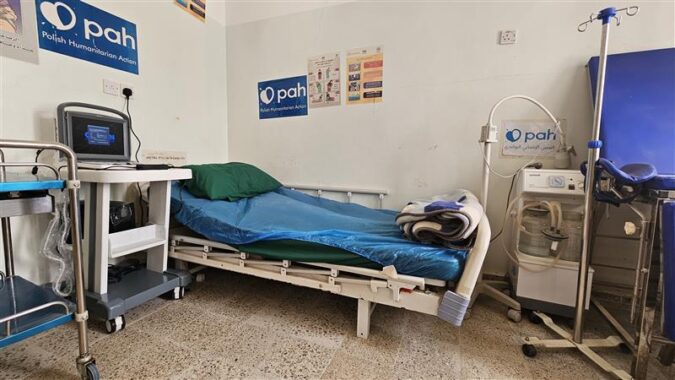The large population and the informal nature of the camps provide an environment in which many problems develop in parallel. In response to this difficult situation, PHA is leading in 2025 a complex project involving both direct aid and improved access to public services for people living in the camps.
PAH also provides partial funding for the operation of a local medical clinic. It pays allowances to the staff, orders medicines and equipment. It also supports a group of women who monitor the malnutrition status of children under the age of five and refer them to appropriate facilities. PAH also provides nutrition supplies for children, as well as rapid cash assistance packages and hygiene items for a small group of 10 patients who require specialised treatment.
In terms of water and sanitation activities, PAH repairs and maintains basic infrastructure, such as latrines, in the camps for internally displaced persons. It also provides hygiene training, raising awareness of epidemiological risks.
Another important aspect of the activities is assistance in obtaining identity documents. As a significant number of people in the camps lost their birth certificates or identity cards, PAH is helping to apply for new document and covers the costs of their issuance.
PAH also funds the work of teachers in schools and provides basic equipment for classrooms, such as desks and wall boards.
Assistance directed to at 5,244 people.



